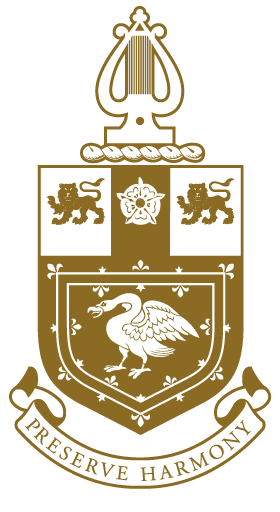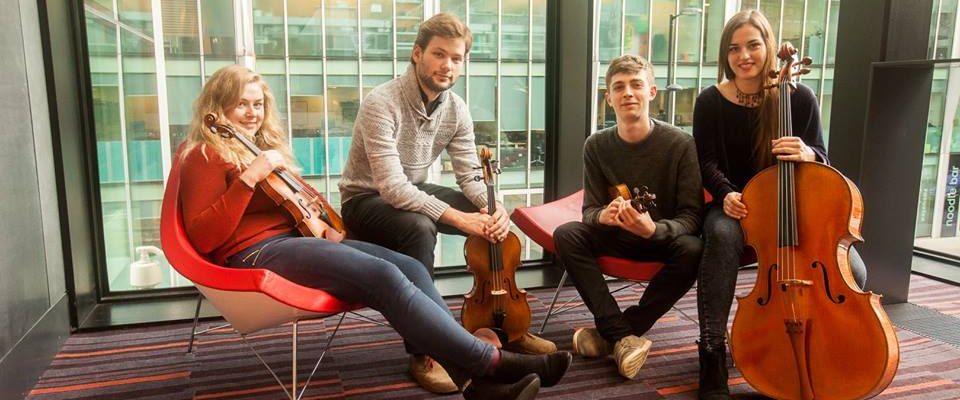Young Artist Interview: Timothée Botbol
The cello isn’t the easiest instrument to lug around, especially as a kid, but at the age of four I set my heart on playing the biggest, most impressive instrument I could find. In my eyes biggest was definitely best!
At the time I would follow my big sister to her weekly violin studies with a tutor from the local music conservatoire. So, keen to follow in her musical footsteps, I expressed an interest in playing the double bass. Rightly thinking the bass was too big for me – in fact, it was bigger than me – my parents suggested I try the slightly more portable cello, with a view to moving on to the double bass in time. Luckily, I took to the instrument straight away, so the bass never found its way into the family home.
My first cello was no larger than a viola, I think, just thicker maybe, and I stuck with it, playing for fun as it was never meant to be more than a side activity, while attending the Jaques Dalcroze Institute. The institute has an innovative way of teaching using the Dalcroze Eurhythmics method which encourages students to experience music through movement, ear-training and improvisation. This teaching method really suited me, helping to maintain and develop my interest in music – especially in theory which can be so serious and dull. I was also able to learn another instrument and so, age 10, I took up the harpsichord having seen one at home. It wasn’t until I entered the pre-professional section of the Genève Conservatoire, however, that I began to think seriously about the cello as a career.
I later had the chance to attend a really artistic high school and I fully immersed myself in its culture and music scene. I loved being on stage, whether I was singing, or performing in an ensemble or as a soloist, and we were constantly performing, sometimes seven times a week. The school had its own venue and ticket office and people from all over the city would come and watch us perform. I got so enthusiastic that I decided to start singing lesson as a baritone at the Genève Conservatoire, which I followed for the next seven years. This activity has had a huge impact on my approach to music performance and led to memorable experiences including an opera that we performed at Geneva’s Victoria Hall accompanied by the Orchestre de Chambre de Lausanne. Although I was picking up all these new skills and passions, I knew at this point that I needed more structure if I was to become a professional cellist, so I auditioned and was offered a place at the Haute École de Musique de Lausanne. I spent five years at the school working on my Bachelors and Masters degree under the direction of Patrick Demenga, who has been a huge influence in my life.
Moving to London was a big step for me, so after leaving the Haute École I took a year off and worked a lot in primary schools where I already had experience as a general tutor while developing my skills as a professional cellist, collaborating with institutions such as the Orchestre de la Suisse Romande in Geneva and earning enough money to make the move. I also set about finding sponsors to fund my Artist Diploma at the Royal College of Music, which I completed this summer. My final recital included Cassadó’s Suite for Solo Cello, an all-time favourite of mine. Luckily there are a lot of organisations that sponsor art, music and theatre in Switzerland – some of which like to remain anonymous – and I was delighted to be awarded grants from major funders as well as respected organisations including the Musicians’ Company Lambert Studentship, the A F Marescotti City of Carouge Award and the Fondation F & M-F Minkoff.
My biggest break came earlier this year when I was awarded the Grand Prize Special from all categories at the II Augustin Aponte International Music Competition, Tenerife. For this competition, I swapped my trusted cello for a beautiful 1850 “Dollenz” Italian cello kindly lent to me by Tarisio Auctions to give me the maximum chance of success and it worked! I don’t think I would’ve had the same success without their generous help as the competition level is now so high the richness of the instrument makes a big difference on the overall impression of a performer. Playing such a refined instrument also made the playing so much easier, enabling me to take my performance to the highest level. I’m currently looking for a sponsor to help fund my next cello so I can compete more effectively on the international stage.
Moving forward, I’m keen to let my career develop organically and see where it takes me rather than map it out. I’ve played in orchestras at venues including the Opera de Vichy and Montreux’s Auditorium Stravinski, and more recently as a soloist at venues in Italy and Germany as well as London’s Kings Place and The Chapel Royal, Hampton Court Palace. However, I also particularly fancy performing in very informal spaces. A disused factory converted into an art residency, an industrial warehouse, etc. I like to think that every concert should be considered a unique event with its own set-up and character, not just part of a “seasonal series”. It then makes more formal and prestigious venues feel even more special. Of course, if I had a bucket list, there are a few venues I would still really like to play. Wigmore Hall, gosh I’d love that, and St John Smith’s Square, though that’s already in the bag as I will be performing there in September with pianist Dinara Klinton. I would also like to work with a professional orchestra as a soloist, whether that’s in the UK or abroad. Fingers crossed it will all come together when the time’s right.
You can find out more about Timothée at www.timotheebotbol.com.





